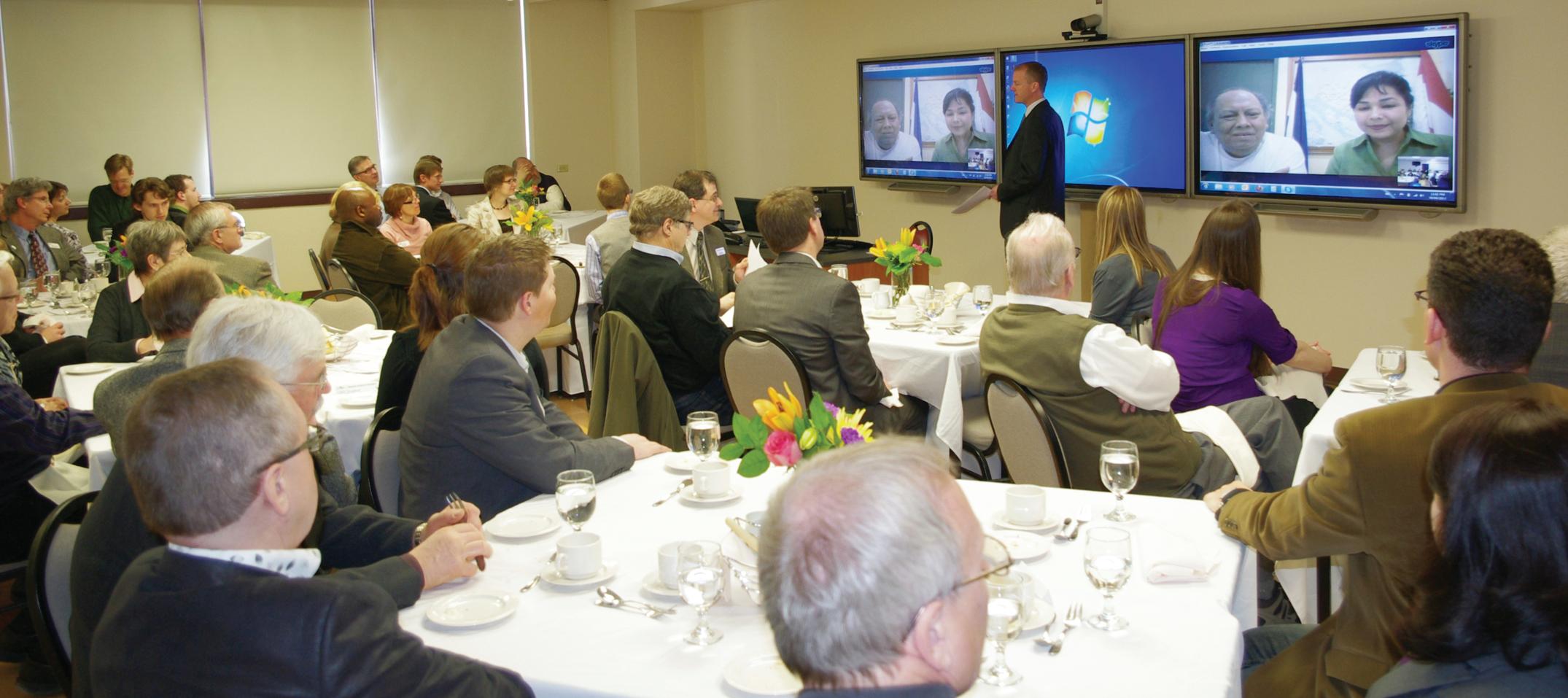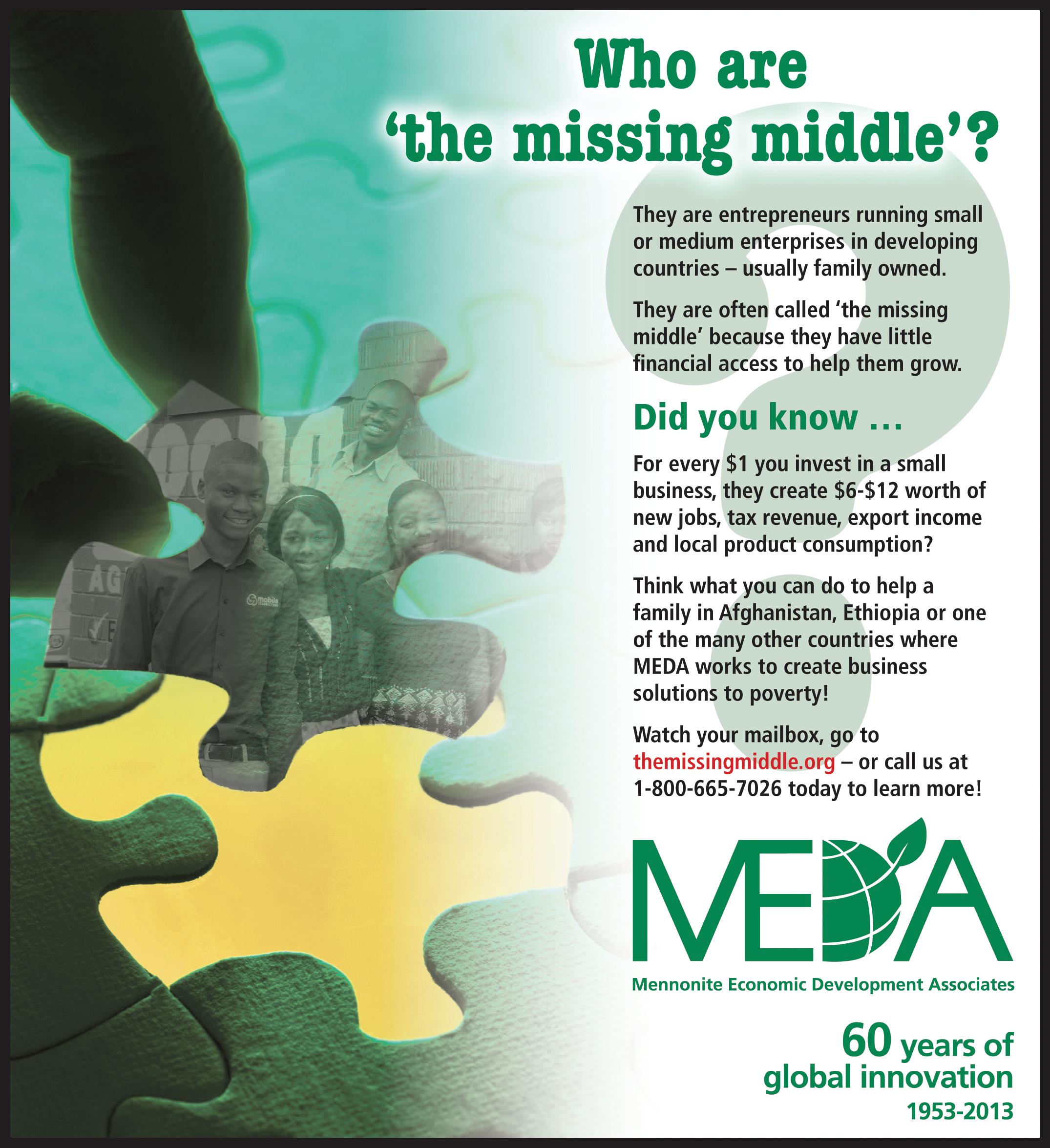
5 minute read
News
Entrepreneur chosen as new EMU graduate dean
Jim Smucker, president and major shareholder of the Bird-in-Hand hospitality corporation in Pennsylvania, has been appointed the first full-time graduate dean of Eastern Mennonite University (EMU), Harrisonburg, Va.
Advertisement
He will bring a skill-set not typically seen in academic leadership — decades of success as a business owner.
Smucker and his brother John have expanded what began in 1968 as a motel built by their Amish-born father on family farmland.
They now run one of the leading hospitality businesses in Pennsylvania-Dutch country. They are the ultimate managers of 450 employees who run the Bird-in-Hand Family Inn, Restaurant and Bakery, as well as other places of lodging in the area, including Amish Country Motel, Mill Stream Country Inn, Travelers Rest Motel, Bird-in-Hand Village Inn and Suites, and Country Acres Smucker Campground. A graduate of Goshen (Ind.) College, Smucker holds master’s and doctoral degrees from (respectively) the University of Scranton and Walden University. Both degrees were in management, with a focus on effectiveness in leadership and organizational change. He has taught these subjects on an adjunct basis at EMU and other colleges.
His blend of experience in business and academe gives him a unique perspective on workplace values.
“Most people spend more time each week at work than they do in church, or even with their families,” Smucker says. “This means that a work environment that includes developing and empowering employees as part of its mission can have a significant positive impact on their social, emotional, and spiritual development.”
As graduate dean, he will oversee and coordinate the fastest-growing component of EMU, with master’s degree students accounting for about a third of EMU’s enrollment. EMU offers master’s degrees in biomedicine, business administration, conflict transformation, counseling, education, and nursing & leadership.
Smucker and his wife, Anna, have three adult children. He is known as a longdistance runner, having completed 23 marathons, including three Boston Marathons and six ultra-marathons.
Smucker begins July 1, succeeding David Glanzer, who filled the role part-time while teaching in EMU’s graduate counseling program. — Bonnie Price Lofton, EMU news service
Photo by Kevin Kilbrei
Jeff Huebner utilizes Skype technology to connect an April 9 meeting of the Winnipeg MEDA Chapter with Veronica Herera, CEO of MiCredito, MEDA’s microfinance institution in Managua, Nicaragua, and Octavio Cortes, longtime MiCredito associate. Herera and Cortes explained how MiCredito makes affordable loans to microbusinesses and responded to chapter members’ questions about interest rates and delinquencies. Huebner is associate professor of international business at Canadian Mennonite University’s Redekop School of Business. He regularly brings students from his international microfinance course to Nicaragua to interview MiCredito staff and clients, carry out research on microfinance, and assist with field audits.
From toothpaste to texting: Gen Y lives to connect
The human body has 206 bones, and for today’s young people, the smartphone could be number 207.
According to a Cisco study on Internet habits, two of fi ve global young people say they “would feel anxious, like part of me is missing” if they couldn’t use their smartphones to stay connected.
It’s as much of their routine as brushing teeth: 90 percent use their smartphone fi rst thing in the morning, some even before getting out of bed. They check for e-mails, texts and social media updates, never mind actually making a call.
The Cisco Connected World Technology Report surveyed 3,600 Gen Y college students and young professionals ages 18-30 across 18 countries on their tech habits. It found the need to stay connected drives every facet of their lives: from work to shopping, friendships to family.
“For employers,” the report says, “this is meaningful because it demonstrates that the workforce of the future is more agile, more informed and more responsive than any previous generation. They live to connect and communicate.” • Three in four check their phones in bed; • More than a third use them in the bathroom; • Nearly half (46%) text, e-mail and check social media during meals with family and friends; • One-third check their
Bakke is back, now as a novelist
Not many entrepreneurs make it as writers; the skill-sets are just too different for most.
Dennis Bakke showed he was an exception when he wrote Joy at Work: A Revolutionary Approach to Fun on the Job, which became a New York Times bestseller. Now he’s at it again, this time with a novelized leadership fable loosely based on his experience as head of AES, a Fortune 200 global power company with 27,000 employees in 27 countries.
The new book, titled The Decision Maker, aims to help “unlock the potential of everyone in your organization, one decision at a time.”
Giving decisions to the people closest to the action can transform a company, he says.
It’s a theme he pushed in his earlier book where he said the fi rst step toward helping employees fi nd meaning in their work is to create an environment where they are free to make important decisions and take responsibility for the results.
“The feeling that you are part of a team, a sense of community, the knowledge that what you do has real purpose — all these things help make work fun,” he wrote. “But by far the most important factor is whether people are able to use their individual talents and skills to do something useful, signifi cant, and worthwhile. When bosses make all the decisions, we are apt to feel frustrated and powerless, like overgrown children being told what to do by our parents.”
The Decision Maker, published by Pear Press, sells for $24.95 in the U.S. and $27.50 in Canada. ◆ smartphones at least once every 30 minutes; in the U.S., that fi gure jumps to more than 50 percent. Globally, one in fi ve checks at least every 10 minutes; in the U.S., it’s two out of fi ve; • Women seem more driven to connect: 85% versus 63% of men admit to compulsively checking their smartphone for text, e-mails or social media updates; • Over 40 percent of resp- ondents would go through “withdrawal” and would feel at loose ends and incomplete if they couldn’t check their smartphones constantly; • Of those compulsive users, 60 percent wish they didn’t feel so addicted; • Two-thirds say they spend the same amount of time — or more — socializing online with friends as they do in person; • Almost one in fi ve admits to texting while driving.
“The craving to stay connected means that the lines between work and social life/ family life are blurring,” says Cisco. “People check for work updates and communicate at all hours from every place imaginable. Time is elastic: For Generation Y there are no clear markers between ‘the workday’ and personal time — both blend and overlap throughout the day and night.” ◆




